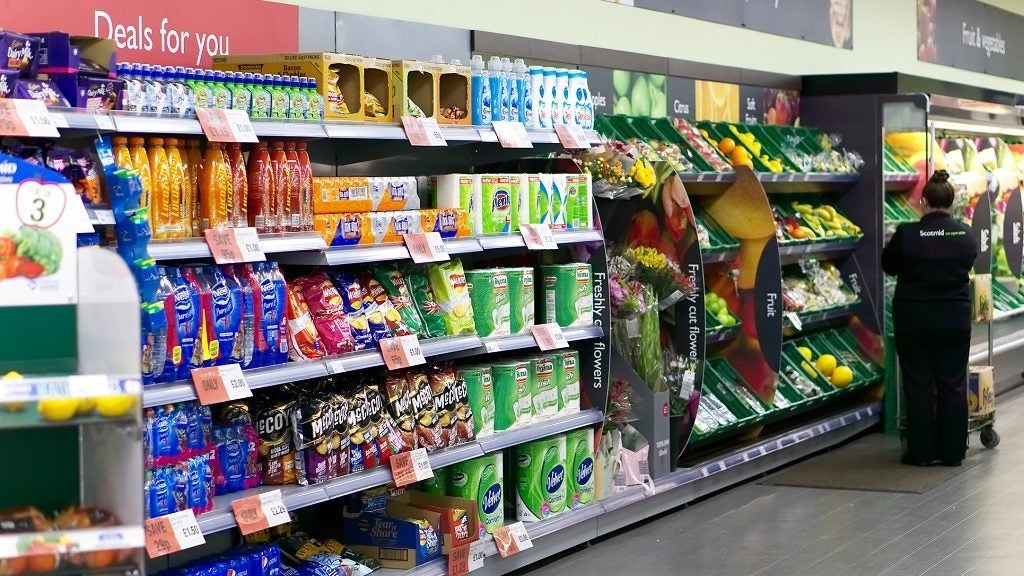

The Scottish government has published proposals to ban the promotion of products high in fat, sugar or salt (HFSS).
Holyrood’s move follows a push by the also-devolved Welsh government, which announced plans to tackle the marketing of so-called junk food last summer.
The UK government in Westminster, by contrast, has repeatedly delayed introducing similar restrictions.
The Scottish government’s proposals announced yesterday (28 February) – and which have now gone out to consultation – have been welcomed by public health campaigners but criticised by industry body Food and Drink Federation Scotland.
Introducing the plan, Jenni Minto, Scotland’s government minister for public health and women’s health, said: “My vision is of a Scotland where everyone eats well and has a healthy weight.
“Scotland has an issue with high levels of overweight and obesity and poor diet, which can have serious consequences for our health. The association between poor diet, excess weight and health outcomes such as heart disease, type 2 diabetes and certain cancers has been established for some time.
Access the most comprehensive Company Profiles
on the market, powered by GlobalData. Save hours of research. Gain competitive edge.

Company Profile – free
sample
Your download email will arrive shortly
We are confident about the
unique
quality of our Company Profiles. However, we want you to make the most
beneficial
decision for your business, so we offer a free sample that you can download by
submitting the below form
By GlobalData
“What surrounds us shapes our health. This is why measures to transform the food environment are so important – to support people to eat well by making the healthier choice, the easy choice. Such measures are also more likely to be effective in reducing health inequalities than by only encouraging individual behaviour change.
“Promotions such as multi-buy offers or placement at checkouts can directly influence the choices we make – that is what they are designed to do. Evidence shows promotions are often applied to less healthy food and drinks. This can encourage us to buy things that we do not need and to overlook cheaper, healthier alternatives. By restricting the promotion of less healthy food and drink where they are sold to the public, we can encourage healthier options and make it easier for people to eat well.”
In a joint statement, Public Health Scotland and Food Standards Scotland said they supported the move to introduce the new rules on HFSS promos.
Paul Johnston, chief executive of Public Health Scotland, said: “Cost-of-living pressures have put healthier options out of reach for many. Very often, the food that is most accessible and heavily promoted is those most damaging to our health.
“We must ensure that eating well is the easiest thing to do – not the hardest. It’s only through direct action, like addressing marketing behaviours on unhealthy food, that we can improve Scotland’s health and reduce the widening health inequalities we are experiencing.”
Industry criticises move
But David Thomson, CEO of Food and Drink Federation Scotland (FDF), argued the plans create a “different set of trading regulations for businesses selling into the Scottish stores compared to that in other parts of the UK”.
He added: “These proposals will disproportionately impact small Scottish food and drink producers and will make selling food in Scotland more complex and costly for everyone.
“FDF will work hard to shape these regulations through the consultation to ensure they take into account the impact on our businesses.”
The Scottish government’s proposals are to introduce regulations under powers in the Food Safety Act 1990 and the Food (Scotland) Act 2015 to restrict the promotion of HFSS foods where they are sold to the public, including across retail and out-of-home settings.
“As set out previously, the policy will target HFSS foods including, among other things, confectionery, cakes, crisps, savoury snacks and soft drinks with added sugar,” it said.
“It is proposed the policy will target promotion types including among other things, multi-buys, temporary price reductions, meal deals and positioning restrictions, such as at checkouts and front-of-store.”
Last summer, the devolved Welsh government announced similar plans to ban the promotion of HFSS products.
A new law to this effect will be introduced this year and will be rolled out across Wales by 2025.
At Westminster, the ruling Conservative government introduced a sugar tax on soft drinks in 2016 but, despite pressure from campaigners, has delayed plans for a ban on junk food adverts before 9pm, the so-called ‘watershed’ threshold between advertising which may be seen by children and that which is specifically intended for adults.
In December 2022, the UK government said the restrictions on TV and online adverts for HFSS products were being pushed back to 1 October 2025. That date is after a General Election, which must be held before January 2025.
The opposition Labour Party has said it will ban junk food advertising aimed at children if it gets into power.
In a speech last May, Sir Keir Starmer, Labour’s leader, said: “I am saying very clearly to those who profit from harming our children – no, not in Britain.”
The Scottish government’s consultation period, during which it will gather opinion on its proposals to clamp down on HFSS product promotions, closes on 21 May.

